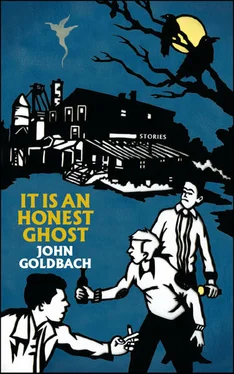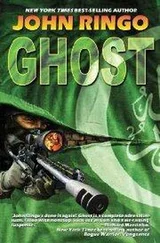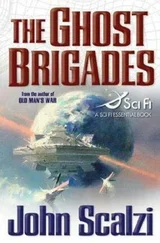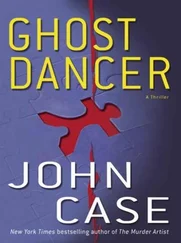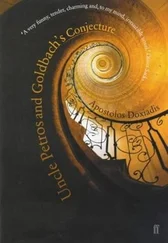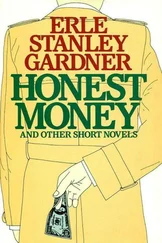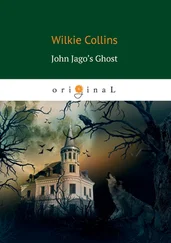John Goldbach
It Is an Honest Ghost
‘Maybe a man’s name doesn’t matter all that much.’
— Orson Welles, from F for Fake
AN OLD STORY: IN FIVE PARTS
I
An old story: disappointments in love, debts unpaid, a series of lousy apartments, a series of lousy jobs, betrayals, some rancour, some sickness, etc. He in many ways was typical but it was in fact the amassing of these specific typical experiences that made him an individual, he liked to think. After a long winter, with its blizzards and periodic power outages and frozen pipes and eternal darkness, spring had arrived, with its budding branches and populated streets and clear blue skies and women in skirts. Something like hope. By mid-May, after weeks of drinking in bars again and trying to meet new women, he once again fell into his solitary winter ways. The promise of the new was not dead and buried, though it once again felt distant, he decided, one mild afternoon, sitting at his kitchen table. The days passed and each day he’d go through his routine, or one of the four or five routines he’d formed and mixed up, in a sense, to keep from confronting the fact that he was a creature of habit, and perhaps temperament, who had much in common with a marmot. Still, even with his varied routines, he thought about a certain inescapable mundanity that he feared came from within but hated to confront so he rarely did, that is to say, confront it.
II
Instead, he altered and augmented his already-existing routines, taking new streets when he walked to work, stopping in stores he’d never been in before, even going into bookstores that sold books in languages he couldn’t read. He read in parks. One night, around dusk, when people walk their dogs while the sun sets, he sat on a park bench, by a pond, reading in the last light. He continued reading and his mind wandered, but he reread the words and sentences and paragraphs he’d passed over, lost in thoughts that had little to do with the book in his hands. A woman with a child and dog walked past the bench. He imagined they quickened their pace when they approached the bench. The sky was more blue than orange. The geese were dark in the sky, flying in awkward formation. He watched them disappear into the dark blue. The park lights gradually came on, humming gently; he stood up and walked away when they came to full light.
III
At night he’d read on his couch for hours on end and often until daybreak, or until he fell asleep, whichever came first. Sometimes he drank. When he drank, however, he’d still read, though absently — that is to say, more absently than usual. While absently reading, he’d often dream of past loves, though not necessarily of past events. He’d dream of new and impossible events, with a strong sense of the past running through these fantasies for the sake of verisimilitude. The nights were long, not surprisingly, though he nevertheless occupied them, with varying degrees of success. First thing every morning, he’d put the kettle on the burner and make mug after mug of steaming Gunpowder Green Tea. Again, he’d submit to routine. Love might be infinite, he’d think, though we’re cracked under its impossible pressures.
IV
Mid-summer it rained for days, a tireless downpour. He avoided going outside. A cat screeched and yowled in the rain on the fire escape outside his window, though he did nothing. It isn’t my cat, he thought. The days looked like nights and the nights went on and on. He was finding it difficult to concentrate. He was finding it difficult to sleep. Nothing seemed to maintain his interest, though he submitted to his routines nonetheless. He’d diagnosed his life as hollow and senseless, and the world followed suit. Cars hydroplaned in the rain and sounded like ocean waves. Thunder rumbled continuously. While sitting at his kitchen table, he thought, I’ve slipped through the grates of a storm sewer. The cat screeched and yowled above the waves.
V
He sat on a park bench. The sun set. Shadows of leaves shuddered quickly on the pale asphalt path. It would be an hour or so until night. He held a book in his hands, though he wasn’t following what he was reading; instead, he was thinking about a woman sitting on a red blanket and reading across the pond on the grassy embankment. He wondered how he could possibly talk to her. He wondered what he’d possibly say. It seemed so impossible, walking over to her, introducing himself, starting up conversation. The water on the surface of the pond rippled in the breeze. He considered removing his wristwatch, then asking her if she had the time. That’s stupid, he thought. He read absently as the sun set and across the pond a beautiful woman read, too. The sky darkened while the park lights slowly warmed. He closed his book and looked across the pond, where not minutes ago the beautiful woman had been reading, though now she was gone and he sat still on the bench. He waited until the lights reached full intensity, then he stood to walk home.
The night wind blew loudly and we sat in the car in the mill parking lot talking, watching the tree boughs bend and sway to and fro and almost break. Soon, I thought, a branch on one of these evergreens will snap in the blustering wind and fly around aimlessly. We were waiting for James. He’d run into the mill to cash a paycheque for Allan from one of the tills in the old safe in the office. It was Allan’s McDonald’s paycheque; he had signed the back, and we sat waiting in James’s 1974 Buick Riviera. We were going drinking downtown. A band we liked was playing; we had just dropped acid.
James returned and got in behind the wheel and counted out six twenties and passed them to Allan, saying, ‘Here you go, fucker.’
‘Thanks,’ said Allan, pocketing the bills. ‘Let’s drink!’
‘Hear, hear,’ I said.
And James spun out the back tires and whipped the car around and sped up the mill hill. The acid hadn’t kicked in yet, or not really, but every once in a while we’d ask each other if it had taken effect. Slowly, it did. We all smoked and music played loudly; James had installed a stolen CD player where the old dial radio used to be. He’d installed some stolen speakers, too, that he’d bought from the back of a truck at a gas station. They sounded like shit.
James wasn’t drinking but he’d nevertheless taken acid, though it hadn’t really kicked in yet. He claimed he drove fine on acid. The streetlights passed by quickly as we descended into the city and the fields turned to strip malls and fast food and gas stations and apartment buildings, all with large parking lots. We kept on driving straight toward downtown, winding with the street, with no other traffic around. There was plenty of parking behind the club. James parked far from other cars; the lot was mainly dark save some lights by the booth, where no attendant sat.
‘I don’t think we have to pay,’ said Allan. ‘Or at least no one’s there.’
‘Fuck it,’ said James and cut the engine, and we all got out.
There was a line out front winding around the corner, but Allan told us just to follow him, and we did, and when we got to the door they let us in, stamped our hands, patted our backs while pushing us forward, and we made our way toward one of the bars. It was loud already and some band was playing, though none of us knew their name and no one we asked at the bar seemed to have any idea who they were, either. But they were loud and the vocals were distorted and so was the guitar and bass and the drums were heavy, too, and fast. Allan and I got beers and James got a Coke. We went outside to the patio with our drinks.
‘The band sounds like shit,’ said James.
Читать дальше
